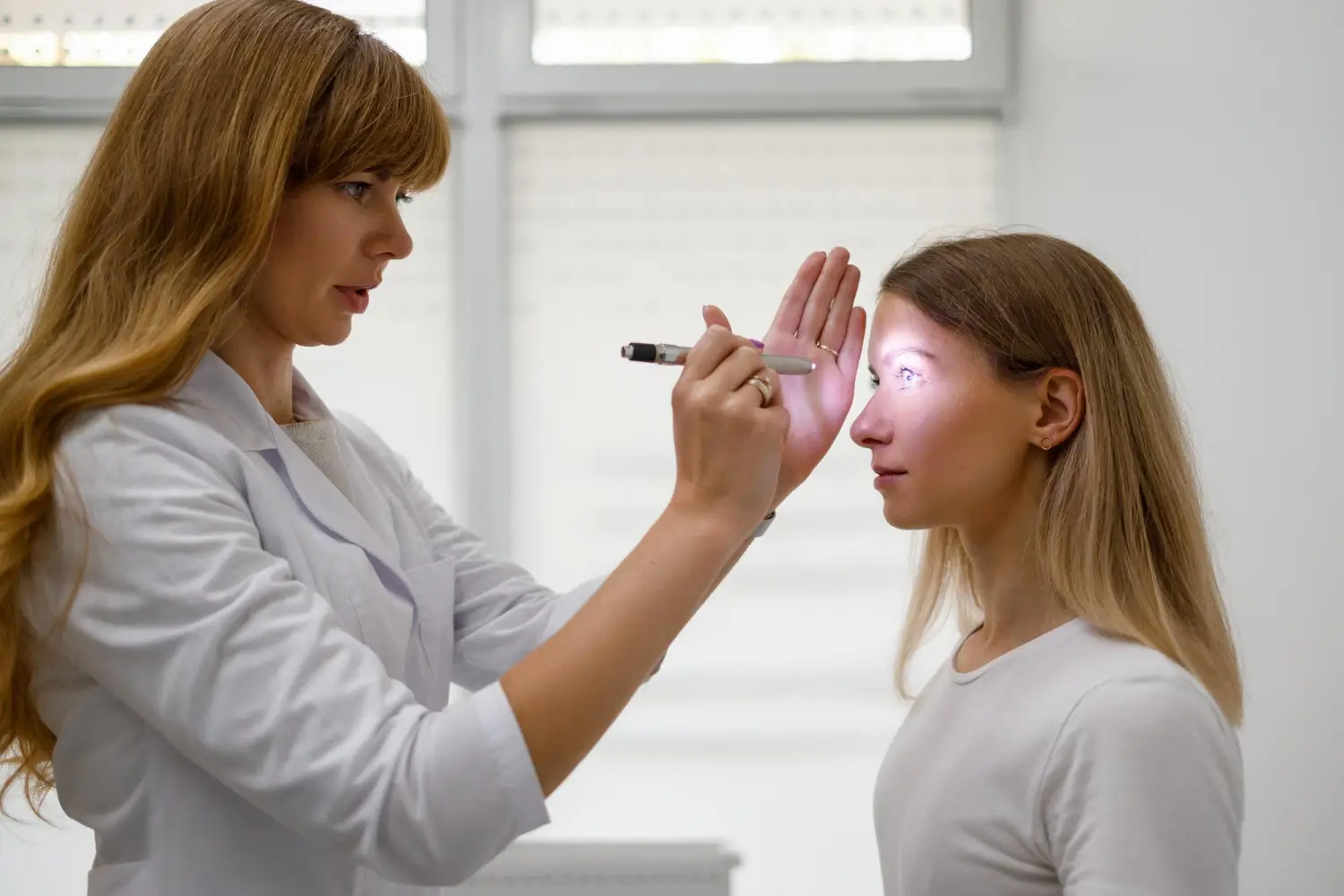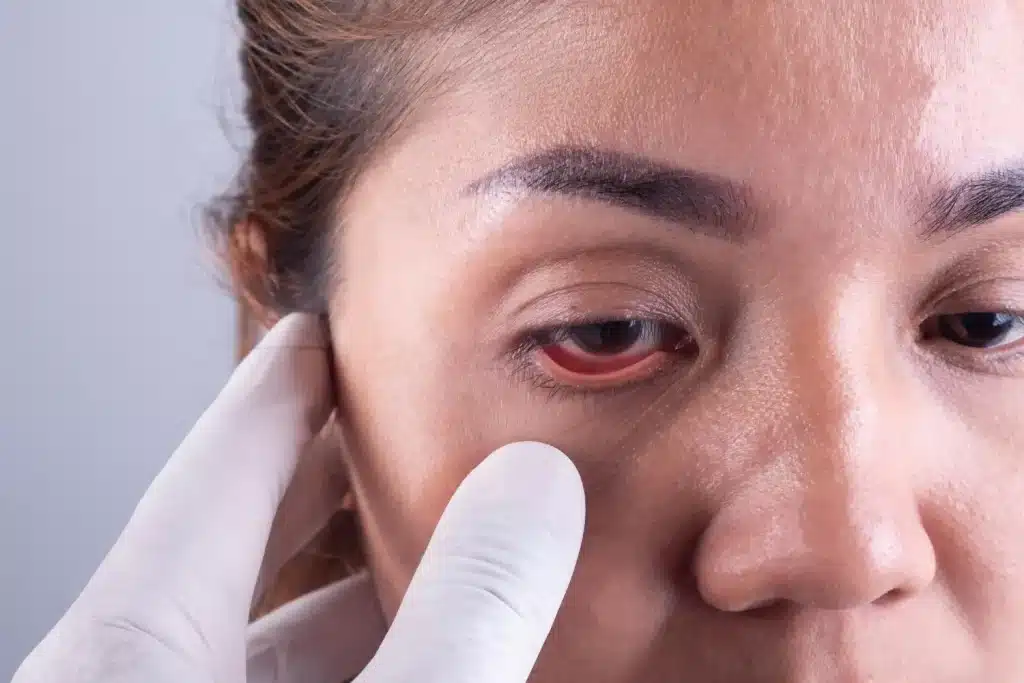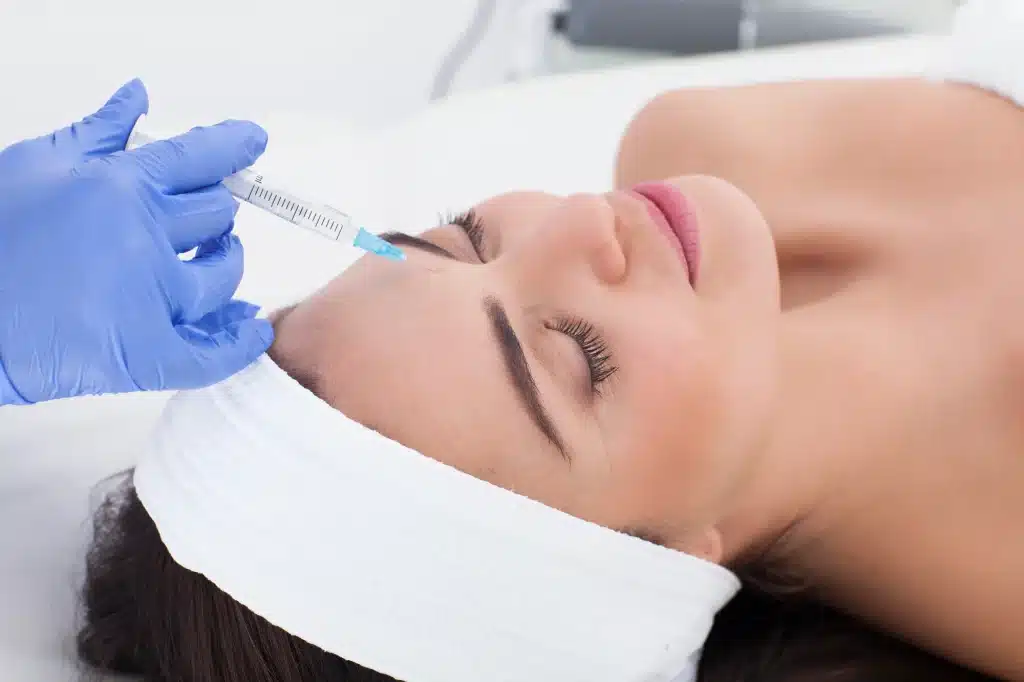Our eyes are securely positioned in hollowed sockets for protection. Eyebrows shield them from sweat, while eyelashes act as barriers against dirt. Together, these natural defenses emphasize the need to protect our vision from external threats and prioritize maintaining overall eye health.
Eylea (aflibercept) is an advanced treatment designed to manage specific retinal conditions that can lead to vision loss. By targeting abnormal blood vessel activity in the eye, Eylea helps control disease progression. It provides a well-established option for patients requiring ongoing management of severe, vision-threatening retinal disorders.
In this article, we will explore Eylea’s indications, mode of action, and its impact on enhancing the management of retinal diseases for better visual outcomes.
Key Takeaways
- Eylea (aflibercept) is an FDA-approved treatment for several vision-threatening retinal conditions, including wet age-related macular degeneration (AMD), diabetic macular edema (DME), diabetic retinopathy (DR), macular edema following retinal vein occlusion (RVO), and myopic choroidal neovascularization (mCNV).
- Its mechanism of action targets VEGF and placental growth factor (PlGF), preventing the growth of abnormal, leaky blood vessels that damage the retina and impair vision.
- Clinical trials such as VIEW, VISTA, VIVID, and PANORAMA have established Eylea’s strong efficacy and safety across approved indications, often outperforming older treatments like laser therapy.
- Experts are also exploring Eylea’s off-label uses, including radiation retinopathy and retinopathy of prematurity (ROP), although these require further research and careful clinical judgment.
- Proper patient selection, adherence to dosing schedules, and individualized treatment plans are essential for achieving optimal results with Eylea therapy.
- When comparing Eylea vs other anti-VEGF agents, its convenient dosing and strong visual outcomes make it a leading choice in retinal care.
About: Medical Spa RX provides medical practices with premium products at the best prices. If you’re looking to buy Eylea online for your practice, the sales representatives at Medical Spa RX can give you guidance.
FDA-Approved Indications for Eylea
Eylea (aflibercept) is approved by the U.S. Food and Drug Administration (FDA) to treat several retinal diseases that cause vision impairment due to fluid leakage or abnormal blood vessel growth. These conditions can progressively deteriorate vision if not treated appropriately. The FDA-approved indications for Eylea include:

- Neovascular (wet) age-related macular degeneration (AMD)
- Diabetic macular edema (DME)
- Diabetic retinopathy (DR)
- Macular edema following retinal vein occlusion (RVO)
- Myopic choroidal neovascularization (mCNV)
Each of these conditions affects the retina’s ability to function correctly. For example, Eylea macular degeneration treatment works by blocking vascular endothelial growth factor (VEGF), a protein that promotes the development of abnormal blood vessels. By inhibiting VEGF, Eylea prevents the formation of leaky vessels that cause swelling and retinal damage, preserving central vision.
Clinical Evidence Supporting Each Indication
Eylea’s approval for each indication is rooted in robust clinical trial data demonstrating its safety, effectiveness, and long-term visual benefits. Below are highlights from the most influential trials:
- VIEW 1 and VIEW 2 trials (wet AMD): Demonstrated that Eylea, administered every 8 weeks following three monthly doses, maintained visual acuity on par with monthly ranibizumab.
- VIVID and VISTA trials (DME): Showed Eylea significantly outperformed laser treatment in improving visual acuity and reducing retinal thickness.
- COPERNICUS and GALILEO trials (RVO): Patients receiving Eylea experienced more rapid and sustained visual improvements than those receiving placebo.
- PANORAMA trial (DR): Proved Eylea significantly reduced the risk of progression to sight-threatening stages of diabetic retinopathy.
These findings not only established Eylea as a first-line treatment but also contributed to the evolution of anti-VEGF therapy as the gold standard in managing retinal vascular disorders.
Off-Label Uses and Emerging Applications
Though Eylea’s use is confined to approved indications in most settings, clinicians sometimes consider it for off-label applications, especially when other treatments prove ineffective. Some of these emerging uses include:
- Radiation retinopathy
- Retinopathy of prematurity (ROP)
- Central serous chorioretinopathy (CSCR)
- Idiopathic macular telangiectasia
While practitioners must always approach off-label use with caution, growing anecdotal and early-phase research suggests that Eylea may hold value in these niche cases. However, the treatment needs further controlled studies to validate safety and efficacy in these broader indications.
Patient Selection Criteria for Eylea Therapy
To maximize treatment success, selecting the right candidates for Eylea is crucial. Ideal patients typically include:

- Those diagnosed with one of the FDA-approved retinal conditions listed above
- Individuals with active disease evident through optical coherence tomography (OCT) or fluorescein angiography
- Patients who are likely to comply with frequent injection appointments and monitoring
- Those with a good safety profile, i.e., no recent intraocular inflammation or active infections
Eylea may also be considered in cases where other anti-VEGF agents (e.g., bevacizumab, ranibizumab) have failed to produce adequate results, especially if vision deterioration continues despite treatment.
Comparative Effectiveness in Various Retinal Conditions
Eylea is often compared to Lucentis (ranibizumab) and Avastin (bevacizumab)—other anti-VEGF medications that treat similar conditions. Here’s how they stack up:
- Wet AMD: Eylea and Lucentis offer similar vision outcomes, but Eylea’s 8-week maintenance interval is often seen as more convenient.
- DME: Some evidence suggests that Eylea may offer greater improvements in visual acuity, particularly in patients with more severe baseline vision loss.
- RVO: Eylea has shown faster and more durable improvements in macular thickness and visual function, making it a preferred option in certain practices.
The choice between agents often depends on treatment history, access to care, insurance coverage, and how patients respond to initial therapy.
Conclusion
Eylea is a proven, evidence-based therapy for managing a variety of retinal diseases that pose a serious threat to vision. Its VEGF-inhibiting action offers significant and sustained improvements in conditions like wet AMD, diabetic macular edema, and macular edema due to retinal vein occlusion. For patients and providers, it delivers a well-balanced profile of efficacy, safety, and flexibility in dosing.
While research into new uses continues, its place in modern ophthalmology is firmly established. Thoughtful patient selection and consistent follow-up care remain critical for achieving the best results with this powerful treatment.
FAQs
1. How does Eylea work?
Eylea blocks VEGF, a protein responsible for abnormal blood vessel growth and leakage in the retina.
2. How do practitioners administer Eylea?
A licensed healthcare professional injects it directly into the eye every 4 to 8 weeks.
3. What are the common side effects of Eylea?
Mild side effects include eye redness, irritation, or blurred vision. Rare but serious risks include eye infection and retinal detachment.
4. Can Eylea cure retinal diseases?
No, Eylea controls the disease and helps preserve vision, but it is not a permanent cure. Patients often need ongoing treatment.
5. Is Eylea better than Avastin or Lucentis?
It depends on the condition and the patient. In some cases, Eylea may offer longer dosing intervals and better results.
6. How quickly does Eylea start working?
Patients often begin to see improvements in vision within a few weeks of the initial injections.
References
Marshall H. Eylea (aflibercept). Published October 18, 2024. https://www.medicalnewstoday.com/articles/eylea
Regeneron Provides Update on EYLEA HD® (aflibercept) Injection 8 mg Supplemental Biologics License Application. Regeneron Pharmaceuticals Inc. https://investor.regeneron.com/news-releases/news-release-details/regeneron-provides-update-eylea-hdr-aflibercept-injection-8-mg
Eylea (aflibercept) FDA Approval History. Drugs.com. https://www.drugs.com/history/eylea.html





















